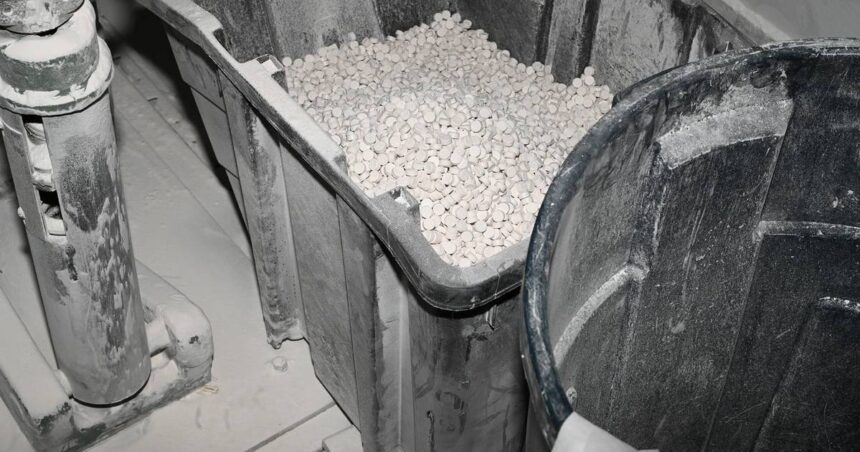In what police are calling one of the largest drug busts in recent Quebec history, RCMP officers have dismantled a massive methamphetamine production facility just outside Montreal, seizing an estimated 2.5 million pills. The operation marks another significant blow against organized crime networks operating in our region.
The raid, conducted early Tuesday morning, targeted a nondescript industrial building in Laval that had been converted into a sophisticated drug manufacturing operation. Sources close to the investigation tell me the facility was capable of producing tens of thousands of pills daily.
“These aren’t small-time dealers we’re talking about,” said RCMP Sergeant Marc Beauchamp in a phone interview yesterday. “This operation had industrial-scale production capabilities that suggest connections to major criminal organizations.”
Walking through Villeray yesterday afternoon, I couldn’t help but notice parents gathered at the local park discussing the news. The concern was palpable – these labs don’t just distribute dangerous substances, they pose serious safety risks to surrounding communities.
The RCMP has not yet released the names of those arrested, but confirmed multiple suspects are in custody and facing charges related to drug production and trafficking. This marks the third major meth lab dismantled in Quebec since January, pointing to a troubling trend.
Public health officials have expressed growing concern about the increasing presence of methamphetamine in Montreal communities. Dr. Sophie Tremblay from the Montreal Public Health Department notes that emergency room visits related to methamphetamine use have risen by nearly 40% in the past year alone.
“Each pill that doesn’t reach our streets potentially saves lives,” Dr. Tremblay explained. “Beyond the immediate dangers of addiction, we’re seeing severe psychological impacts, including psychosis and violent behavior in heavy users.”
The scope of the operation suggests sophisticated organization. Police discovered specialized manufacturing equipment, chemical precursors, and professional packaging materials designed to mimic prescription medications. This technique, authorities say, is particularly concerning as it might fool young people into thinking they’re taking something legitimate.
Mayor Valérie Plante addressed the situation during yesterday’s press conference at City Hall. “While we applaud the RCMP’s success in this operation, it reminds us that we must remain vigilant and continue strengthening prevention efforts across our neighborhoods,” she stated.
The investigation began months ago following community tips about unusual activity at the location. Several residents reported strange odors and frequent late-night deliveries – the kind of community vigilance that often provides crucial leads in such cases.
Montreal has seen its drug landscape evolve dramatically in recent years. Walking through Jean-Talon Market last weekend, I overheard two veteran SPVM officers discussing how methamphetamine has gradually displaced crack cocaine in certain areas, creating new challenges for law enforcement and public health alike.
The RCMP confirmed they’re working closely with local police departments across greater Montreal to identify connected distribution networks. “These operations don’t exist in isolation,” explained RCMP Commissioner Patricia Bourque. “They’re part of sophisticated criminal enterprises that we’re committed to dismantling.”
For families across Montreal, the news brings mixed emotions. There’s relief that these dangerous substances have been kept off our streets, but also concern about the scale of production happening so close to home.
Marie-Claude Giroux, who leads a parent support group in Saint-Leonard, shared with me that conversations about drug awareness now start much earlier. “Parents are having to discuss these dangers with children as young as 11 or 12,” she said. “It’s not the childhood many of us remember.”
The seized pills, with an estimated street value exceeding $15 million, would have primarily targeted young adults and vulnerable populations. Health Canada will analyze the seized substances, as formulations often contain dangerous additives that increase health risks.
Community support resources have seen increased demand following news of the bust. The Centre for Addiction and Mental Health in Montreal reported a 30% increase in calls to their helpline this week alone.
As Montrea







